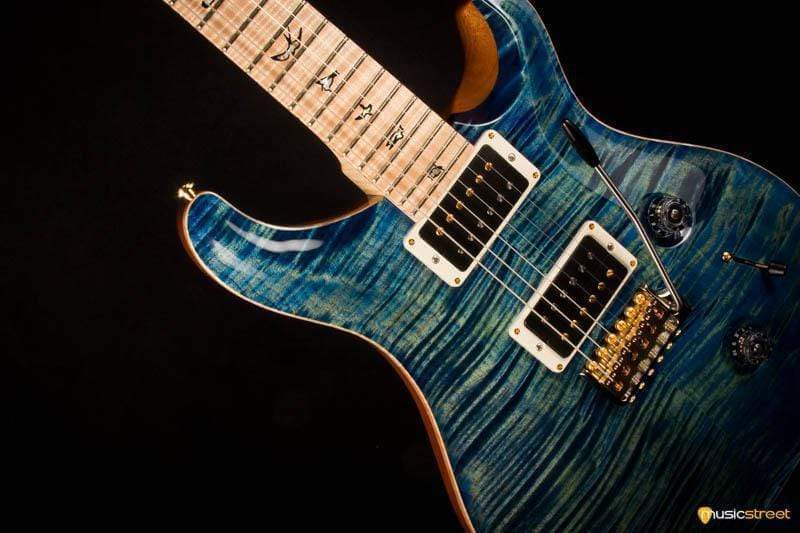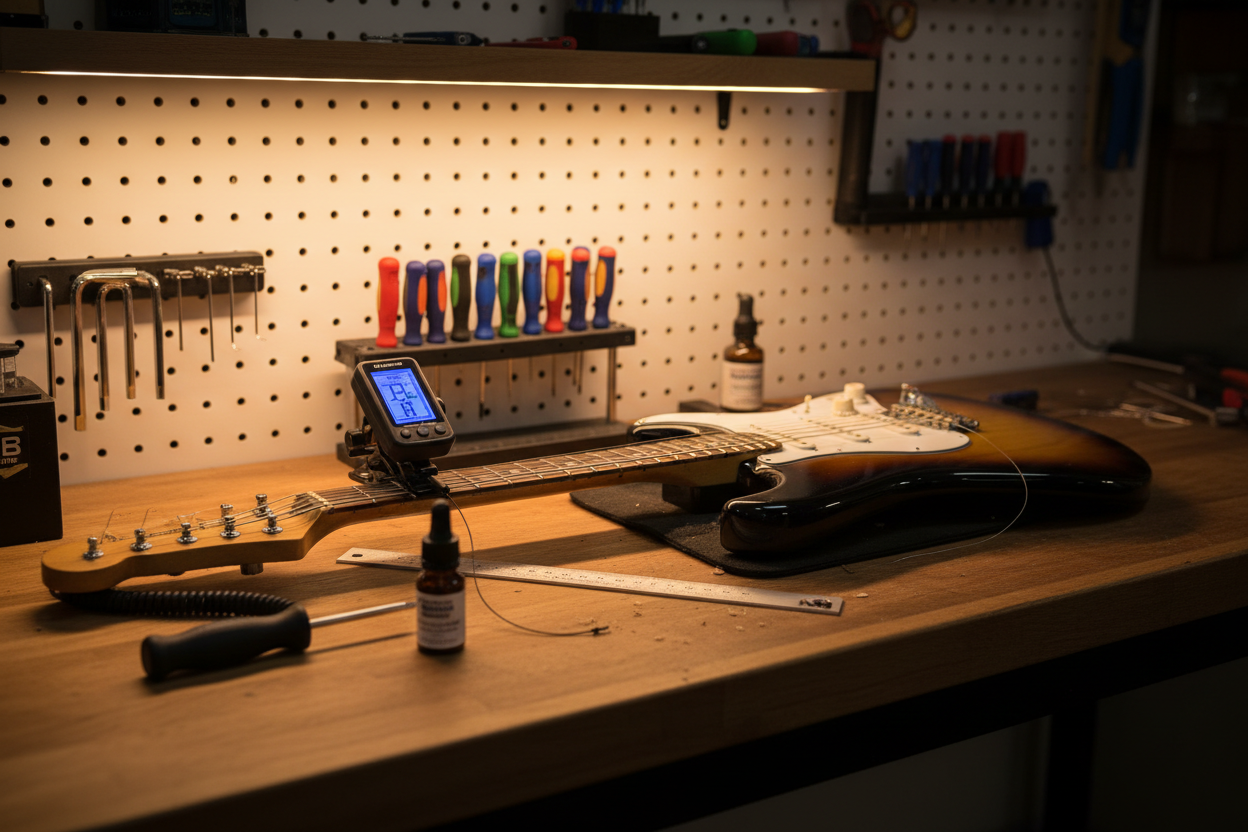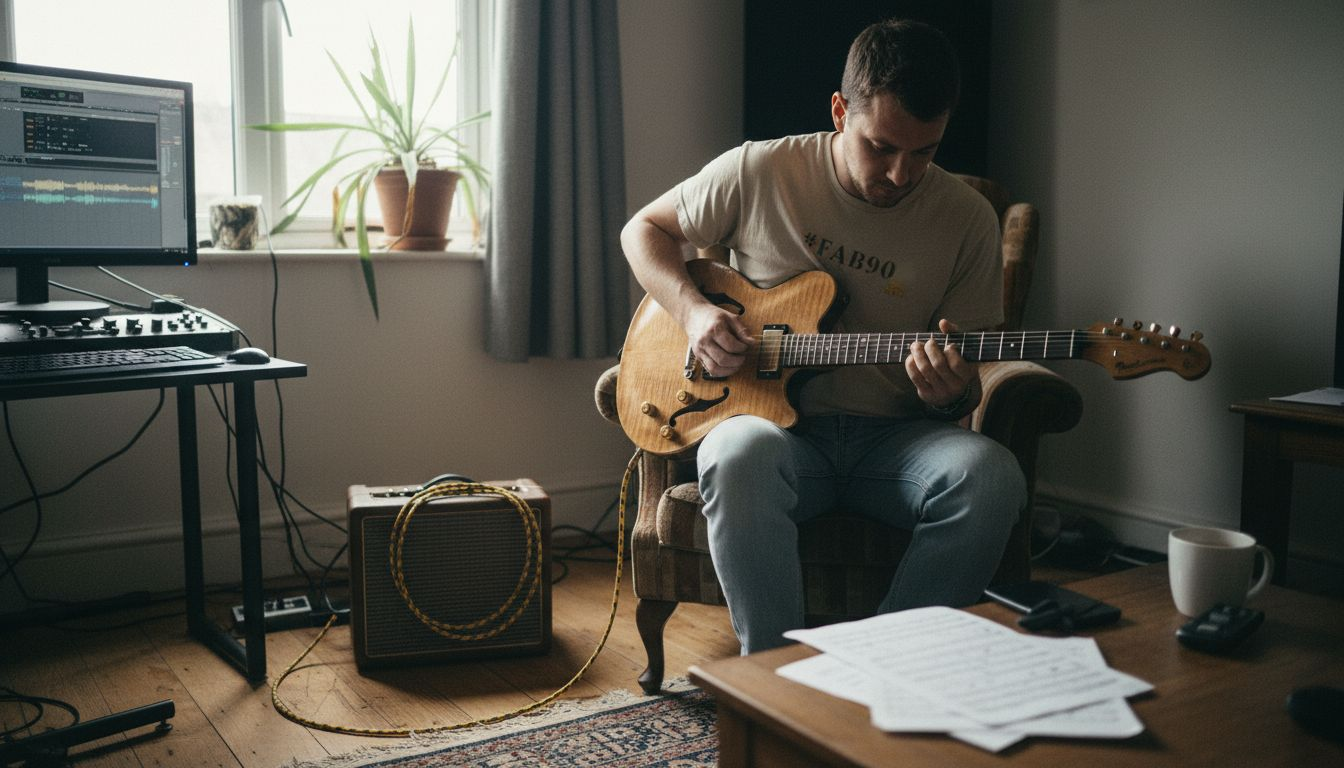Most guitars on music store racks are built for the masses, but boutique guitars stand apart as a rare breed. Only a small fraction of guitars worldwide are handcrafted by individual luthiers who pour artistry and precise skill into every detail. For musicians who crave pure expression and a truly personal connection with their instrument, boutique guitars offer something mass-produced models never can. Discover what makes these instruments so sought after, how they’re built, and why they redefine the meaning of quality for serious players.
Table of Contents
- Defining Boutique Guitars And Core Concepts
- Types Of Boutique Guitars And Key Variations
- Hallmarks Of Boutique Craftsmanship And Materials
- Performance, Playability, And Sound Differences
- Cost, Value, And Alternative Options
Key Takeaways
| Point | Details |
|---|---|
| Boutique Guitars Defined | Boutique guitars are handcrafted by independent luthiers, focusing on artisanal quality and personalized specifications. |
| Craftsmanship Highlights | These instruments feature unique wood selections, custom hardware, and meticulous construction techniques, enhancing their sonic character. |
| Sound and Playability | Boutique guitars excel in tonal complexity and responsiveness, providing enhanced resonance and a superior playing experience. |
| Investment Considerations | Despite higher price tags (usually ranging from £2,000 to £10,000), boutique guitars serve as functional art and can appreciate in value, making them a worthy investment for serious musicians. |
Defining Boutique Guitars and Core Concepts
The world of boutique guitars represents a unique intersection of artistry, craftsmanship, and musical passion. According to escholarship.org, the term ‘boutique’ in the guitar industry specifically refers to instruments meticulously crafted by small-scale, independent luthiers who place supreme emphasis on artisanal quality and exclusive design, distinctly separating these instruments from mass-produced models.
Unlike conventional guitar manufacturing, boutique guitar makers prioritize individual attention and custom specifications. These skilled craftspeople typically work in small workshops, dedicating extensive time and precise technical expertise to each instrument. Handcrafted precision means every guitar receives personalised design considerations - from wood selection to neck shape and electronic configurations - ensuring musicians receive an instrument that feels uniquely tailored to their playing style and sonic preferences.
Key characteristics that define boutique guitars include:
- Limited production runs
- Exceptional build quality
- Unique wood selections
- Custom hardware configurations
- Personalised aesthetic designs
The what is boutique guitar guide further elaborates that these instruments aren’t just about technical specifications, but represent a profound connection between musician and instrument. Each boutique guitar tells a story - reflecting the luthier’s philosophy, artistic vision, and commitment to pushing musical boundaries beyond standardised manufacturing approaches.

Types of Boutique Guitars and Key Variations
Boutique guitars represent a diverse landscape of musical craftsmanship, encompassing several distinct variations that cater to different playing styles and sonic preferences. These unique instruments can be broadly categorised into electric, acoustic, and hybrid boutique guitars, each offering musicians extraordinary levels of personalisation and sonic character.
Electric boutique guitars typically represent the most innovative segment of the market. Craftsmen in this domain focus on creating instruments with exceptional tonal qualities, using carefully selected woods, custom wound pickups, and meticulously designed electronic circuits. Some luthiers specialise in recreating vintage designs with modern precision, while others push boundaries with entirely original body shapes and experimental configurations.
Key variations within boutique guitar categories include:
- Solid body electric guitars
- Semi-hollow and chambered body designs
- Acoustic boutique guitars with unique tonewoods
- Hybrid electric-acoustic instruments
- Custom ergonomic body shapes
While exploring these fascinating variations, guitarists might find the types of electric guitar guide helpful in understanding the broader context of guitar design. Acoustic boutique guitars often showcase extraordinary woodworking skills, with luthiers selecting rare or exceptional tonewoods like Brazilian rosewood, Adirondack spruce, and other premium materials that significantly influence an instrument’s resonance and tonal complexity.
Hallmarks of Boutique Craftsmanship and Materials
Boutique guitar craftsmanship represents the pinnacle of musical instrument design, where meticulous attention to detail transforms raw materials into extraordinary sonic instruments. According to MusicStreet, these guitars involve advanced construction techniques, including hand-carving neck profiles and custom voicing, ensuring each instrument offers a unique and personalized playing experience.
Wood selection stands as a critical hallmark of boutique guitar craftsmanship. Luthiers carefully source premium tonewoods, considering not just aesthetic qualities but the precise acoustic characteristics of each timber. Exotic woods like Brazilian rosewood, Adirondack spruce, and figured maple are chosen for their exceptional resonance, grain structure, and tonal properties that mass-produced guitars simply cannot replicate.
Key characteristics of boutique guitar craftsmanship include:
- Individually hand-selected materials
- Precision hand-carving techniques
- Custom neck profile shaping
- Unique finish and aesthetic treatments
- Detailed electronic component selection
For musicians seeking deeper insights into high-end instrument construction, the craftsmanship of high-end acoustic guitars provides an excellent exploration of the intricate world of premium instrument manufacturing. Beyond technical specifications, boutique guitars represent an art form where each instrument becomes a personal statement, reflecting the luthier’s philosophy and the musician’s individual sonic identity.

Performance, Playability, and Sound Differences
Boutique guitars represent a transformative approach to musical performance, offering musicians an unprecedented level of sonic expression and technical precision. According to ImagTech, these instruments deliver unparalleled sound quality and playability, with luthiers tailoring instruments to inspire musicians to explore new sonic territories through rich, nuanced tones and ergonomic designs.
Sound characteristics distinguish boutique guitars from mass-produced instruments in profound ways. Where standard guitars often compromise on tonal complexity, boutique instruments provide extraordinary harmonic depth, with each note presenting a more intricate and responsive sound profile. The carefully selected woods, custom-wound pickups, and meticulously crafted electronics create a sonic palette that responds dynamically to a musician’s individual playing technique.
Key performance differences include:
- Enhanced resonance and sustain
- More responsive dynamic range
- Superior harmonic complexity
- Precise intonation across the fretboard
- Exceptional note definition
Musicians looking to understand how to elevate their sound might find the guide on choosing the ultimate guitar particularly illuminating. Ultimately, boutique guitars are not just instruments but sophisticated tools that translate a musician’s most subtle emotional expressions into pure, unadulterated sound.
Cost, Value, and Alternative Options
Navigating the world of boutique guitars requires a nuanced understanding of their financial investment and value proposition. According to Premier Guitar, these instruments often come with higher price tags due to their personalized features and superior craftsmanship, offering unique instruments that reflect the luthier’s philosophy and passion.
Pricing dynamics in the boutique guitar market typically range from £2,000 to £10,000, depending on the complexity of design, materials used, and the individual luthier’s reputation. While this might seem substantial, these guitars represent more than just an instrument - they’re essentially functional art pieces that can appreciate in value over time. The investment goes beyond monetary considerations, encompassing the instrument’s potential to inspire creativity and provide an unparalleled playing experience.
Consideration alternatives for musicians include:
- Entry-level boutique models
- Used boutique guitars
- Semi-custom production instruments
- High-end production guitars with boutique-like qualities
- Saving and purchasing incrementally
For musicians exploring budget-friendly pathways into high-quality instruments, the guide on choosing the ultimate guitar offers valuable insights into making informed purchasing decisions. Ultimately, a boutique guitar represents a personal investment in musical expression, where the true value extends far beyond its initial price tag.
Discover Your Perfect Boutique Guitar Experience at MusicStreet
Choosing a boutique guitar means investing in supreme craftsmanship, unique tonal character and an instrument tailored to your personal style. At MusicStreet, we understand the passion and precision behind these exceptional guitars and the challenge musicians face finding genuine, high-quality boutique models that truly inspire every note. Whether you seek custom hand-carved necks, rare tonewoods or unparalleled playability our curated collection showcases the very best instruments ready to elevate your sound.

Explore our range of new and pre-owned boutique guitars along with expert advice by visiting MusicStreet. Take advantage of detailed listings and trusted reviews to make an informed choice now. Don’t wait to experience the transformative feel and rich tone these instruments deliver. Start your journey towards owning a unique musical masterpiece today by visiting MusicStreet.co.uk and discover the boutique guitar made just for you.
Frequently Asked Questions
What are boutique guitars?
Boutique guitars are high-quality instruments crafted by small-scale, independent luthiers who focus on artisanal quality and custom specifications, differentiating them from mass-produced models.
What are the key characteristics of boutique guitars?
Key characteristics of boutique guitars include limited production runs, exceptional build quality, unique wood selections, custom hardware configurations, and personalized aesthetic designs.
How do boutique guitars differ in sound and playability compared to mass-produced guitars?
Boutique guitars generally offer enhanced resonance, superior harmonic complexity, and a more responsive dynamic range. They are tailored to provide precise intonation and exceptional note definition, creating a richer, nuanced tonal experience.
Are boutique guitars worth the investment?
While boutique guitars may have a higher price tag, they represent functional art pieces with the potential to appreciate over time. Their superior craftsmanship and ability to inspire creativity often make them a valuable investment for dedicated musicians.




Share:
What Is Vintage Guitar? Complete Guide for Musicians
Complete Guide to Dreadnought Guitar Type